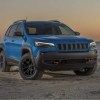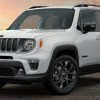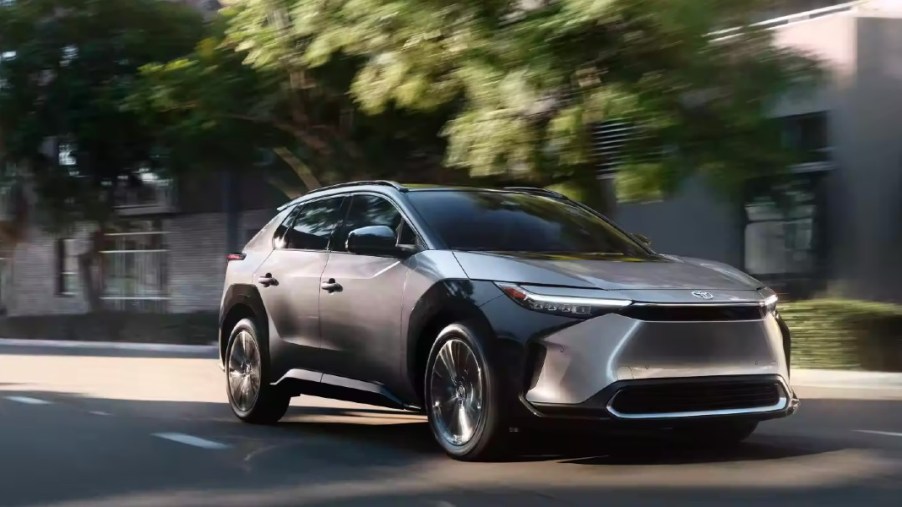
EV Wars: Did Toyota’s Small Electric SUV Flop?
Toyota is late to the electric vehicle game in the eyes of many consumers and experts. Toyota partnered with Tesla and Panasonic to make a 2014 Toyota RAV4 EV, but it wasn’t nearly practical enough to last. The RAV4 EV only got around 103 miles of driving range. Almost a decade later, Toyota has another battery-electric SUV offering. Is its EV getting a warm reception from consumers, or does it fall short?
Making a successful EV nameplate isn’t easy
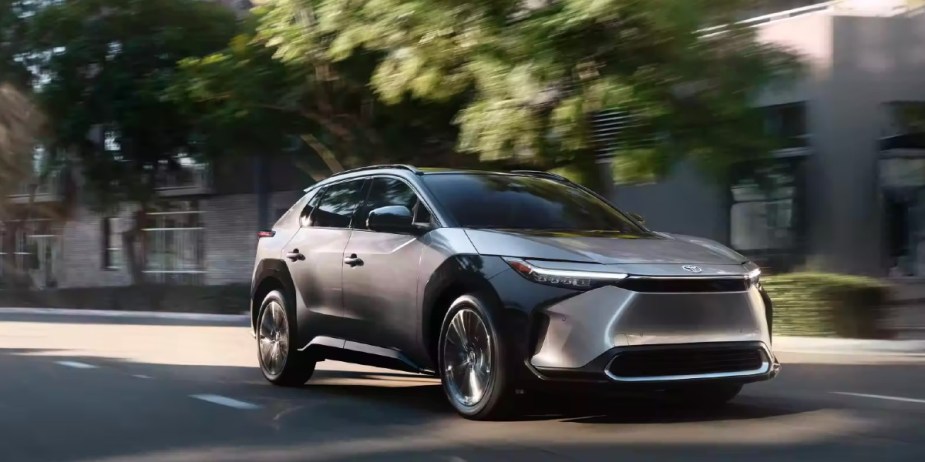
Japanese automaker Toyota is innovative. It is one of the first automakers to mass-produce a hybrid vehicle. The Toyota Prius may not be the most beloved vehicle, but it’s a historic model nonetheless. The Toyota Prius paved the way for several successful Toyota hybrid nameplates and inspired competitors around the world. So, as automakers began to roll out electric vehicle nameplates, naturally, consumers kept an eye on Toyota. After all, hybrid technology should be an easy entry point to battery-electric vehicle technology, right?
Apparently, producing a successful battery-electric vehicle nameplate isn’t as easy as consumers believe. Toyota has the hybrid game in the bag, but making popular electric vehicles is a different story entirely.
Some of the many complications involved with electric vehicle production are safety and reliability. Automakers like Tesla, General Motors, and Ford have all experienced battery fires. Producing an electric vehicle with a safe battery is proving to be difficult. Furthermore, one EV battery supplier can’t take all the blame. Batteries from different companies are overheating and ultimately causing dangerous fires.
So, Toyota has been hesitant to fully commit to producing an entire lineup of fully-electric vehicles. The company has reason to be wary, especially considering the chilly reception of its small electric SUV.
The Toyota bZ4X is no Toyota RAV4
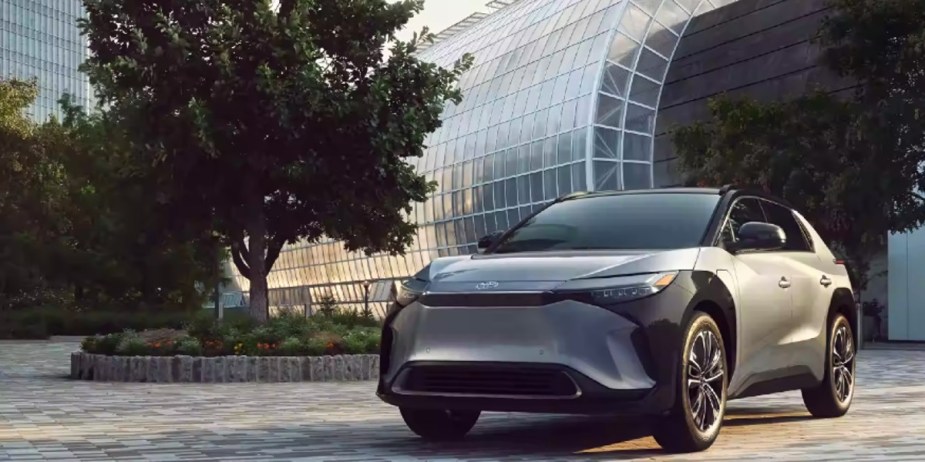
Consumers had high expectations for Toyota’s small full-electric SUV because of the success of other SUV nameplates like the Toyota RAV4. Thus far, few consumers would agree that the bZ4X is living up to expectations. Toyota produces the most popular small SUV, but its small electric SUV isn’t the best in its segment.
The Toyota bZ4X does many things right, but its specs are average compared to some of its flashier rivals like the Ford Mustang Mach-E and Tesla Model Y. The small electric SUV starts at $42,000. It makes 214 horsepower and 248 lb-ft of torque. The EV gets about 222 miles of standard diving range.
Toyota’s fully-electric small SUV isn’t particularly quick, affordable, or dazzling. It hasn’t won any major awards or made the impact that models like the Hyundai Ioniq 5 are making.
Should Toyota go back to the drawing board for the bZ4X?
Toyota’s electric SUV is currently being eclipsed by more popular rivals. There isn’t much the brand can do in the short term to make the EV significantly more appealing.
The bZ4X could play an important role in the company’s portfolio in time, but it has a long way to go, and plenty to grow before it can be mentioned alongside nameplates like the RAV4. Car and Driver claims that rivals are “more exciting on the road.” Did Toyota’s small electric SUV flop?
